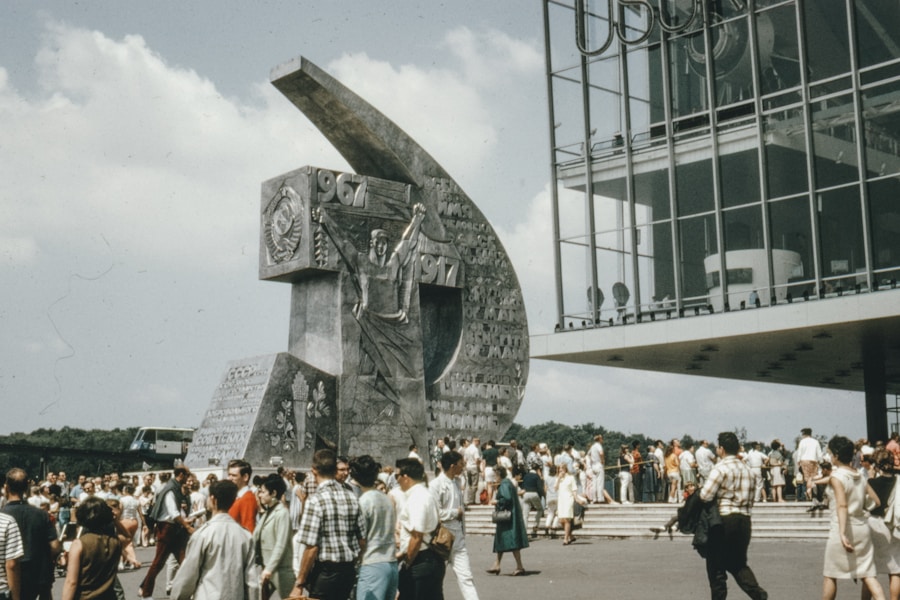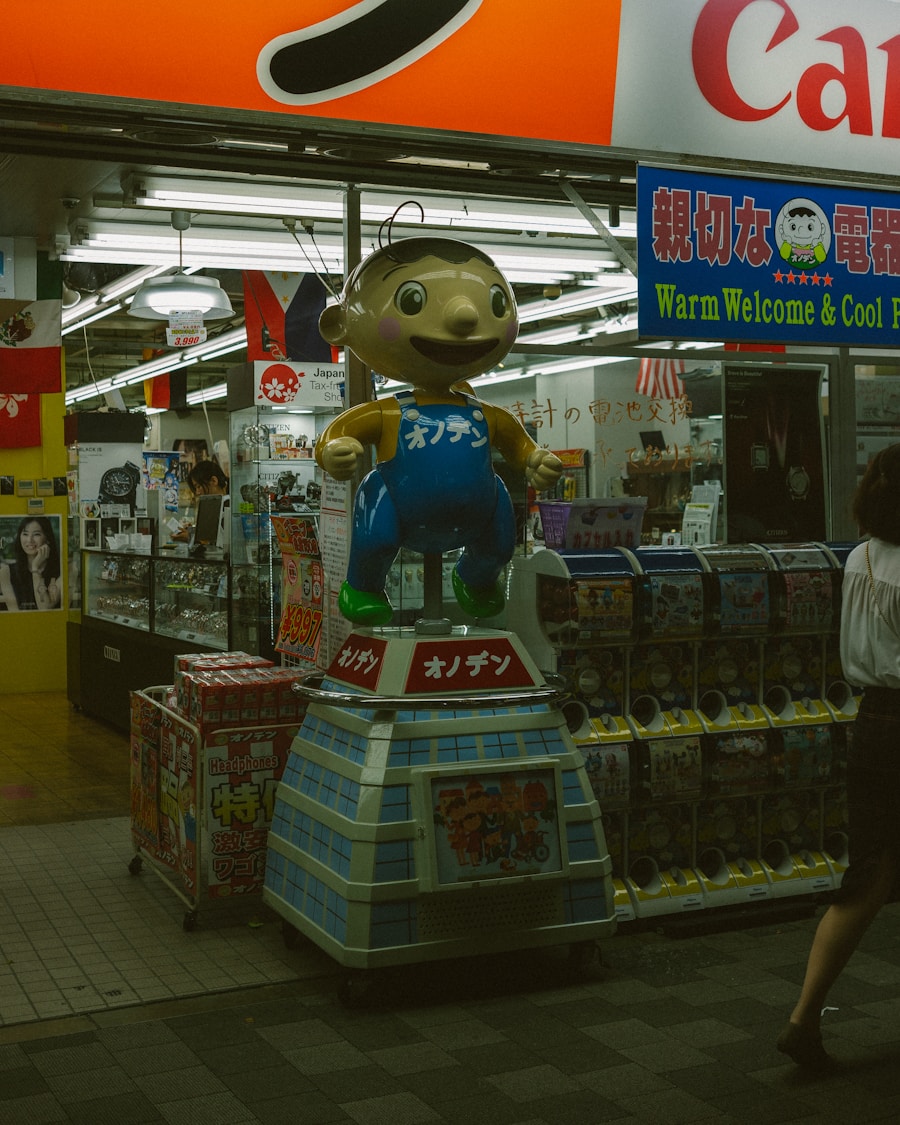The Showa Era, spanning from 1926 to 1989, was a period of profound transformation in Japan, marked by significant economic fluctuations. You might find it fascinating that this era began with the tail end of the Taisho period’s liberalism, only to be followed by the tumultuous years of World War
The post-war years saw Japan grappling with devastation, but it was during the 1950s and 1960s that the nation experienced an economic miracle. This rapid industrialization and urbanization reshaped the landscape of Japanese society, leading to a burgeoning middle class and a consumer-driven economy. As you delve into this era, you can appreciate how the economic climate influenced not just the livelihoods of individuals but also the cultural narratives that emerged during this time.
The economic boom brought about a sense of optimism and possibility. You can imagine the excitement in the air as people began to enjoy new consumer goods, from household appliances to automobiles. This newfound prosperity was not just about material wealth; it represented a collective hope for a brighter future.
The government played a crucial role in this transformation, implementing policies that encouraged industrial growth and technological advancement. As you explore this dynamic period, consider how the economic climate set the stage for cultural phenomena, including the rise of unique entertainment forms that would capture the imagination of both Japanese citizens and audiences worldwide.
Key Takeaways
- The Showa Era was characterized by economic growth and optimism, leading to a flourishing entertainment industry.
- Kaiju themes became increasingly popular in Showa Era entertainment, reflecting the societal fascination with larger-than-life creatures and the unknown.
- Kaiju served as a reflection of economic optimism, symbolizing Japan’s ability to overcome challenges and emerge stronger.
- The influence of Kaiju on popular culture and consumerism was significant, leading to the creation of a wide range of merchandise and media centered around these creatures.
- The Showa Era’s economic and Kaiju themes had a lasting impact on global markets and trade, shaping Japan’s image and influencing international perceptions.
The Rise of Kaiju Themes in Showa Era Entertainment

As you navigate through the entertainment landscape of the Showa Era, you’ll notice a remarkable emergence of kaiju themes—giant monsters that became iconic symbols of Japanese cinema. The first significant kaiju film, “Godzilla,” released in 1954, was a direct response to the anxieties of post-war Japan. You can see how this film tapped into the collective fears surrounding nuclear power and environmental destruction, resonating deeply with audiences who had lived through the horrors of war.
The kaiju genre quickly evolved, giving rise to a plethora of films featuring various monsters, each with its own unique narrative and symbolism. The popularity of kaiju films was not merely a fleeting trend; it reflected a broader cultural fascination with the monstrous and the extraordinary. You might find it intriguing how these films often served as allegories for societal issues, such as urbanization and technological advancement.
As you watch these films, consider how they encapsulate the fears and hopes of a nation grappling with its identity in a rapidly changing world. The kaiju became more than just entertainment; they were cultural touchstones that allowed audiences to confront their anxieties while also celebrating resilience and strength.
Kaiju as a Reflection of Economic Optimism
| Kaiju Film | Release Year | Box Office Revenue (in million USD) |
|---|---|---|
| Godzilla | 1954 | 2.25 |
| Pacific Rim | 2013 | 411.0 |
| Godzilla: King of the Monsters | 2019 | 386.6 |
In many ways, kaiju films can be seen as a mirror reflecting the economic optimism of the Showa Era. As you analyze these narratives, you’ll discover that they often depict humanity’s struggle against overwhelming odds, symbolized by colossal monsters wreaking havoc on cities. This struggle can be interpreted as a metaphor for Japan’s own battle for recovery and growth in the aftermath of World War
The triumph over kaiju often signifies a collective victory for society, reinforcing the idea that through unity and determination, challenges can be overcome. As you immerse yourself in these stories, consider how they echo the sentiments of a nation that had risen from the ashes to become an economic powerhouse. The kaiju narratives encapsulate a spirit of hope and perseverance, reminding viewers that even in the darkest times, there is potential for renewal and progress.
The Influence of Kaiju on Popular Culture and Consumerism
The impact of kaiju themes extended far beyond cinema; they permeated various aspects of popular culture and consumerism during the Showa Era. You may find it fascinating how these giant monsters became marketing icons, appearing on everything from toys to clothing. The commercialization of kaiju characters created a cultural phenomenon that resonated with audiences of all ages.
As you explore this aspect, consider how these monsters became symbols not only of entertainment but also of consumer identity. Merchandising opportunities flourished as studios recognized the potential for kaiju to drive sales. You might be surprised to learn that Godzilla alone spawned an entire industry dedicated to toys, collectibles, and memorabilia.
This commercialization reflected broader trends in consumer culture during Japan’s economic boom, where people were eager to embrace new products and experiences. As you engage with this topic, think about how kaiju became intertwined with national identity and consumerism, shaping not just entertainment but also everyday life.
Showa Era’s Impact on Global Markets and Trade

The Showa Era’s economic growth had far-reaching implications beyond Japan’s borders, influencing global markets and trade dynamics. As you examine this period, you’ll notice how Japan emerged as a formidable player in international trade, exporting goods ranging from automobiles to electronics. This economic prowess was accompanied by a cultural exportation as well; kaiju films gained popularity worldwide, introducing global audiences to Japanese storytelling and cinematic innovation.
You may find it interesting how this cultural exchange fostered a greater understanding of Japan on the global stage. The success of kaiju films paved the way for other Japanese media to gain traction internationally, creating a ripple effect that contributed to Japan’s soft power. As you reflect on this phenomenon, consider how the interplay between economic growth and cultural exportation shaped perceptions of Japan in the eyes of the world.
The Role of Kaiju in Shaping Japanese National Identity
Kaiju themes played a significant role in shaping Japanese national identity during the Showa Era. As you delve into this topic, you’ll discover that these monstrous figures often embodied complex emotions related to Japan’s history and cultural psyche. For many viewers, kaiju represented both fear and fascination—fear of destruction but also fascination with resilience and rebirth.
You might find it compelling how these narratives allowed individuals to grapple with their national identity in a post-war context. The portrayal of kaiju often reflected societal values such as courage, sacrifice, and unity in adversity. As you engage with these themes, consider how they resonate with Japan’s collective memory and aspirations for peace and prosperity.
The kaiju became symbols not only of entertainment but also of national pride, embodying the spirit of a nation determined to rise above its past while embracing its future.
The Legacy of Showa Era Economic Optimism and Kaiju Themes
The legacy of economic optimism and kaiju themes from the Showa Era continues to influence contemporary Japanese society. As you explore this legacy, you’ll notice that many aspects of modern culture still draw inspiration from this rich history. The enduring popularity of kaiju films demonstrates their lasting impact on storytelling and entertainment in Japan and beyond.
You might find it fascinating how new generations are reinterpreting these themes while maintaining their core messages of resilience and hope. Moreover, the economic principles established during the Showa Era have laid the groundwork for Japan’s current position in global markets. As you reflect on this legacy, consider how it informs contemporary discussions about innovation, sustainability, and cultural identity.
The interplay between economic growth and cultural expression remains relevant today as Japan navigates new challenges while honoring its past.
The Continued Relevance of Showa Era Economic and Kaiju Themes in Modern Society
In today’s rapidly changing world, the themes of economic optimism and kaiju narratives from the Showa Era remain strikingly relevant. You may find it intriguing how contemporary issues such as environmental concerns and technological advancements echo the anxieties portrayed in classic kaiju films. As society grapples with challenges like climate change and urbanization, these narratives offer valuable insights into resilience and adaptation.
Furthermore, as globalization continues to shape cultural exchanges, kaiju characters have found new life in international collaborations and adaptations. You might be surprised to see how these iconic figures have transcended their original context to become symbols of unity across cultures. As you engage with modern interpretations of kaiju themes, consider how they continue to inspire hope and creativity in an ever-evolving world.
In conclusion, as you reflect on the Showa Era’s economic climate and its influence on kaiju themes, you’ll uncover a rich tapestry woven from history, culture, and identity. These narratives not only shaped Japan’s past but also continue to resonate in contemporary society, reminding us all of the enduring power of storytelling in navigating our shared human experience.
